Getting There
With only a short delay leaving Denver, and after an 8-hour calm and uneventful flight (that’s a good thing!), we landed in Munich, Germany. Our flight to Tbilisi, the capital city of Georgia didn’t leave for another 8 hours, so we found some comfortable seats in the Lufthansa Club Lounge and settled in for the day. For those with upcoming air travel plans, airports and airlines are requiring “medical grade” masks such as the N95 masks – no cloth or similar masks that many people wear, so at least for now extra caution is being taken. Lufthansa would not allow us into the Lounge without N95 masks, even though in Denver they allowed the hospital-style medical masks.
Munich is 8 hours ahead of Denver and Tbilisi is 2 hours ahead of Munich, so after a 4-hour flight it was about 2:00am Saturday morning by the time we checked into the Vinotel Hotel, on the edge of the old town. Surprisingly, the large crowds and police that met us at the airport were not for us, but instead to welcome home the Georgia Olympic basketball team, including one player who is at least 7’ 6” tall (unfortunately, however, the team was eliminated from the competition after eight rounds). Vinotel is a 13-room, four-star boutique hotel in the historic district of Avlahari. The hotel has received several “best of” awards, and is well known for its restaurant and incredible wine cellars that date back to the 1880’s. Historically, the hotel used to be the residence of nobles, as many were in the 1800’s in this part of the city; typically, the owners lived in the quarters on the upper floors, and rented out the first floor to businesses. When the Russians invaded in the early 1900’s, these grand residences were taken over by the Communist government and became communal housing for several working families.

DAY ONE
After breakfast in the dining room, we met up in the lobby for a walk along the Mtkvari (Kura) River, heading into the old town. The riverfront is lined with parks and attractions, including Freedom Park, a balloon ride, gardens, historic forts and churches, and a gondola for higher views of the city.
It is in the Abanotubani District where most of the city’s famous thermal baths are located. Although only about 12 are now open, in the 13th Century there were 63 baths in the area. People used to gather along the Abanotubani gorge to wash their laundry in the stream below the nearby Leghvtakhevi Waterfall. The Persian-style baths were erected to make the most of the hot springs, and the iconic brick domes of the baths have become popular tourist sites. We decided to try out the first one we came to, Chreli-Abano bath house, not only a popular location to enjoy the hot sulfur pools, but also the backdrop for wedding photos after the ceremony – there were two wedding parties there during the short time we were there. There were no public pools so we rented a private room for the six of us, costing each of us the equivalent of $10, including fresh towels for an hour-long visit!
Afterwards, we walked down the street to a local outdoor restaurant for a light lunch and cold beers on the patio. The walk back to the hotel took about thirty minutes, after which we all crashed for a three-hour nap before dinner with our guide for the planned tours and hikes. Tomorrow we continue sight-seeing in Tbilisi, this time with a local tour guide to help us make the best use of our time in the city.


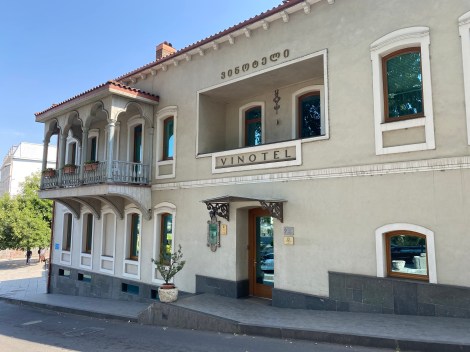
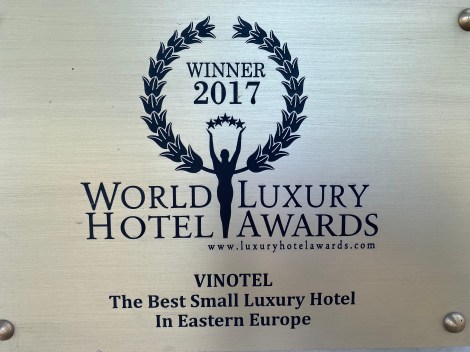

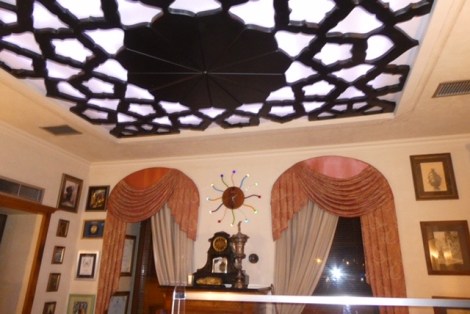
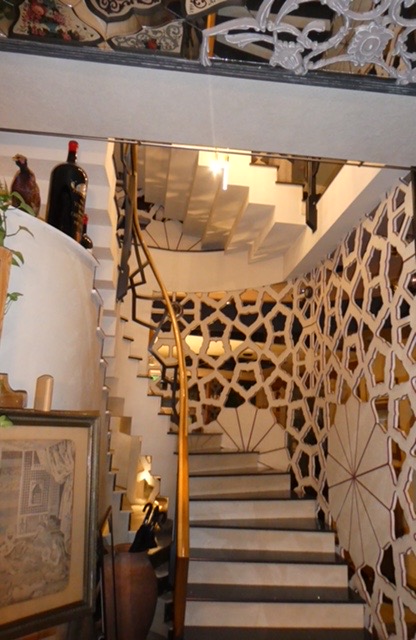
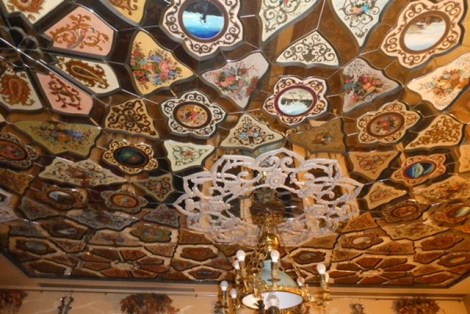

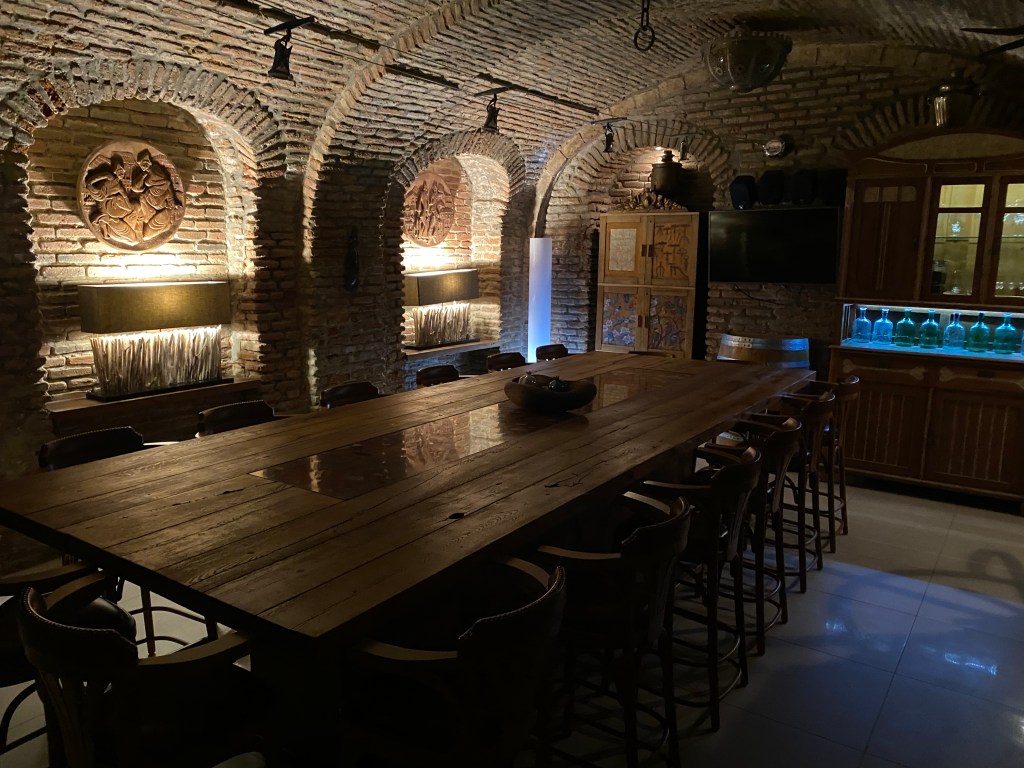

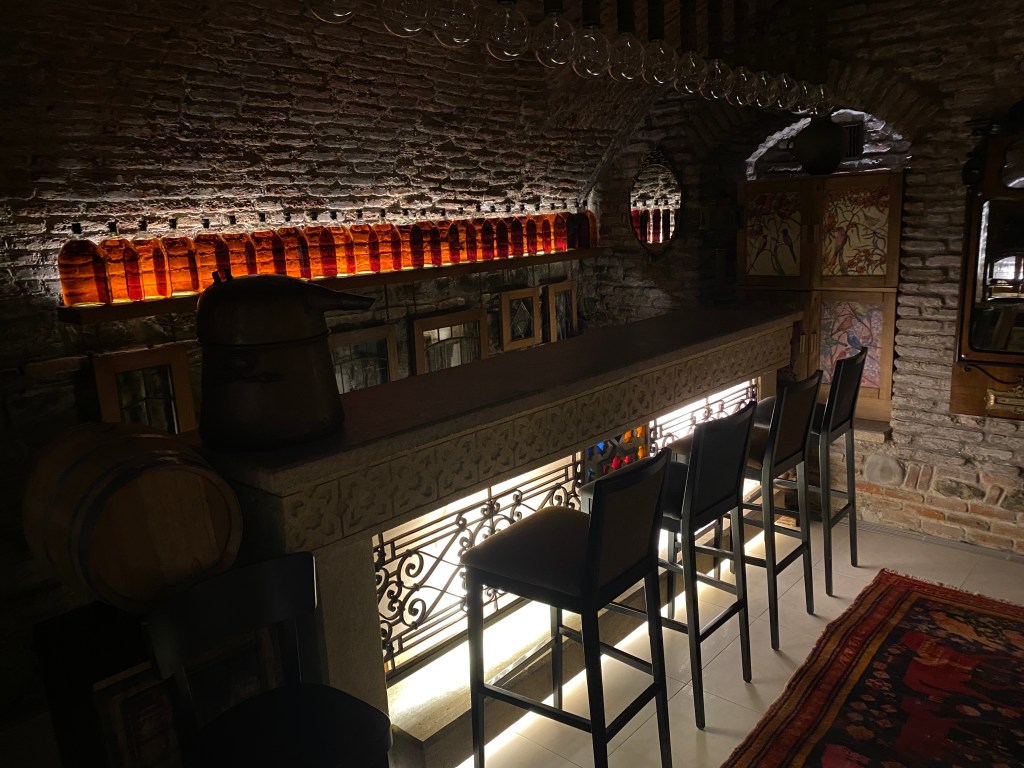
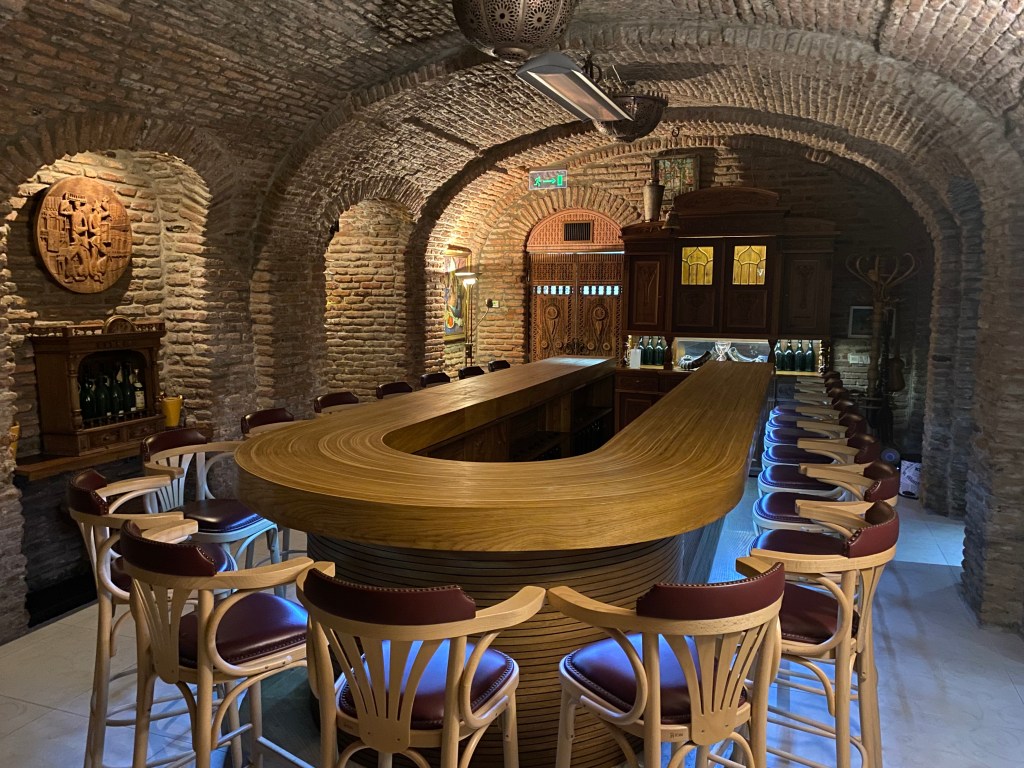

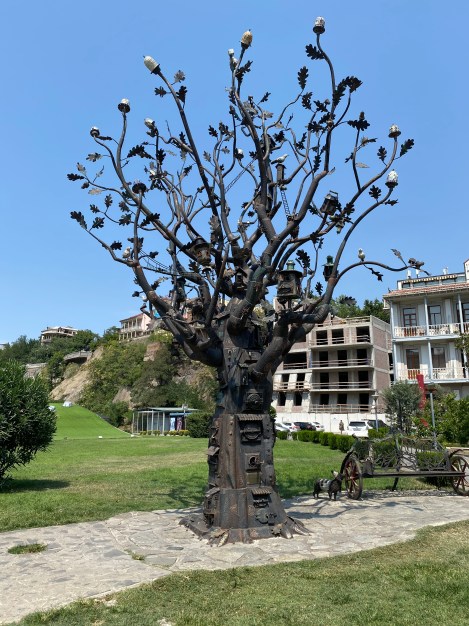
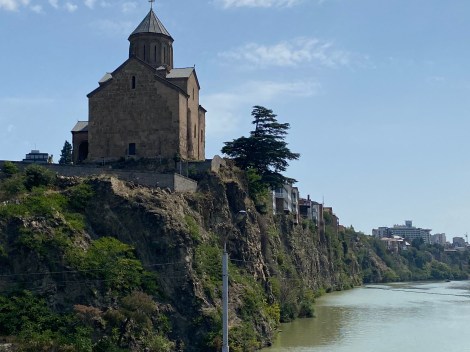

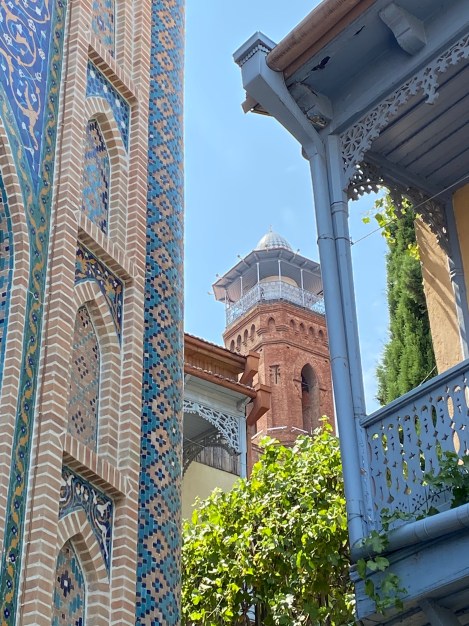

You are walking in beauty.
The thermal experience thrives in those parts of the world.
The architecture is ornate;
hope the comfort is equal.
LikeLike